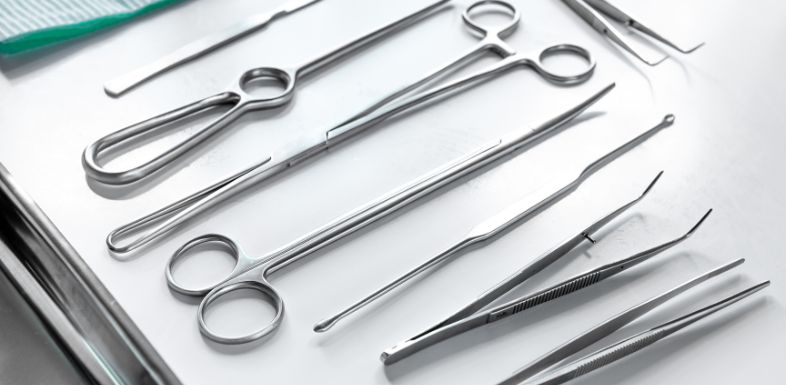Proper Ways To Care for Surgical Instruments
Discover essential tips for maintaining the quality and longevity of surgical instruments. Learn how to ensure safety and efficiency in medical procedures.

Caring for surgical instruments is paramount to ensuring their longevity, maintaining their functionality, and, most importantly, securing patient safety. Surgical tools are intricate devices requiring rigorous maintenance procedures to prevent infection, corrosion, and damage.
Let’s look at proper ways to care for surgical instruments and ensure they remain in pristine working condition for years.
Proper Handling and Storage
Proper handling of surgical instruments is crucial to prevent damage and preserve their sharpness. You should handle instruments carefully, avoiding sudden or rough movements that can cause bending, scratching, or breaking. Surgical instrument trays can organize and safely transport instruments, minimizing the risk of damage during transportation.
After use, instruments should be cleaned thoroughly and dried before storage. Storing damp or wet instruments can lead to corrosion, rusting, or bacterial growth. You should also store instruments in a dry and well-ventilated area to prevent moisture buildup.
Sterilization
Sterilization is critical in maintaining surgical instruments’ cleanliness and preventing the spread of infection. Instruments should be thoroughly cleaned before sterilization by following the manufacturer’s instructions and using specialized cleaning solutions. Once cleaned, you should sterilize instruments through autoclaving or chemical methods. It’s important to note that not all instruments are suitable for every sterilization method, so it’s essential to refer to the instrument manufacturer’s guidelines.
Proper Cleaning Techniques
Proper cleaning techniques are vital to remove any visible debris, blood, or tissue from instruments. Cleaning should be done immediately after use to prevent any buildup or staining, which can make cleaning more difficult later. Instruments should also be disassembled before cleaning, ensuring all parts are adequately cleaned and sterilized. Soft-bristled brushes and enzymatic solutions are recommended for cleaning, as they are gentle on the instruments but effective at removing debris.
Regular Maintenance Checks
Regular maintenance checks are essential to identify signs of wear and tear or damage on surgical instruments. After every use, you should thoroughly inspect and repair or replace any damaged or malfunctioning instruments immediately. It’s also crucial to follow the manufacturer’s guidelines for instrument maintenance, including sharpening, lubrication, and testing for proper functionality.
Proper Handling of Delicate Instruments
Delicate instruments, such as microsurgical tools or ophthalmic instruments, require extra care when handling and cleaning. You should handle them cautiously to prevent damage to their delicate tips and edges. Specialized cleaning solutions are recommended for delicate instruments, and abrasive materials or harsh chemicals should be avoided.
Proper Training for Instrument Care
Proper training is essential for all healthcare professionals who handle surgical instruments. It’s crucial to thoroughly understand the instrument’s proper handling, cleaning, and sterilization procedures to ensure their longevity and patient safety. Healthcare facilities should provide regular training sessions on instrument care and conduct audits to ensure all staff members follow proper protocols.
The meticulous care and maintenance of surgical instruments are foundational to the successful outcome of medical procedures and the safety of patients. By adhering to the best practices outlined above, healthcare facilities can ensure surgical instruments remain in optimal condition. These tips can help extend these crucial tools’ lifespan and uphold the highest standards of patient care and safety, which is the ultimate goal of any medical practice.
